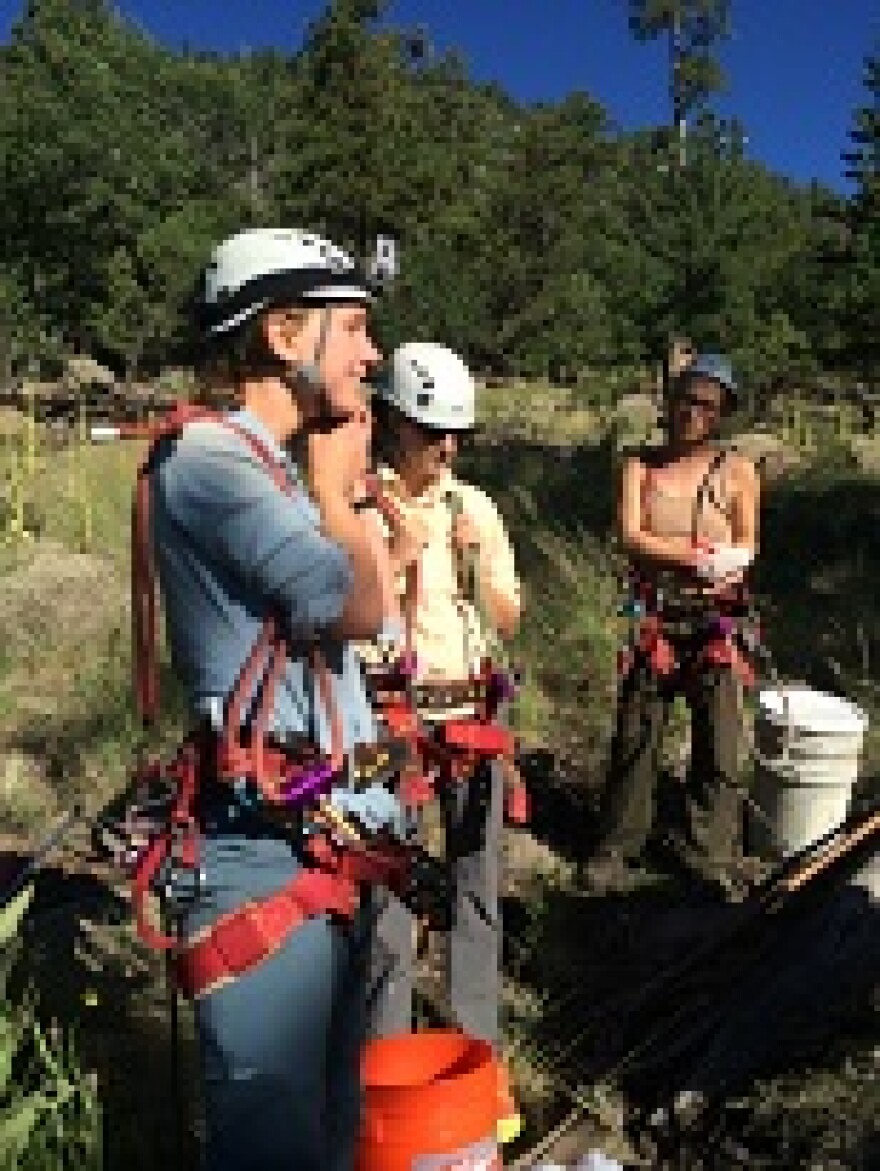Tree climbing scientists are going to great heights to find pine genes with the perfect fit for the future.
Hillary Cooper is a biologist at Northern Arizona University. Perched high-up in a Southwestern White Pine on Mount Elden, she gathers cones for an experiment to see if they'll grow in warmer, drier conditions. "It wasn't too windy today," Cooper says, "but we had to climb pretty high on about a 4" trunk and then really stretch out to get those cones at the tippy top."

Cooper is part of a team testing the resilience of Southwestern White Pines to climate change. She collects cones that have been artificially heated all summer in the trees with a layer of bubble wrap and polypropylene. The process allows the seeds to develop in warmer conditions.
Biologist Amy Whipple is a principal investigator on the project. She says, "In the winter we'll bring the seeds out, and we'll start growing them in the greenhouse to see if that warming treatment affected their viability, their timing of growth, their cold hardiness, their tolerance to drought because eventually after growing them in the greenhouse, we will then put them out in the field."
Whipple says the pine genome is very large. She and her team are sequencing specific traits of the seedlings associated with survival. "So, we can learn which markers are a sign that the tree will do well in drought or do well fighting off invasive disease." Whipple adds, "We'll start to get a correlation between those markers and the tree traits that we're interested in in the field."
Whipple is not only testing to see if the genes are there but if they can respond to changing or stressful environmental conditions.




